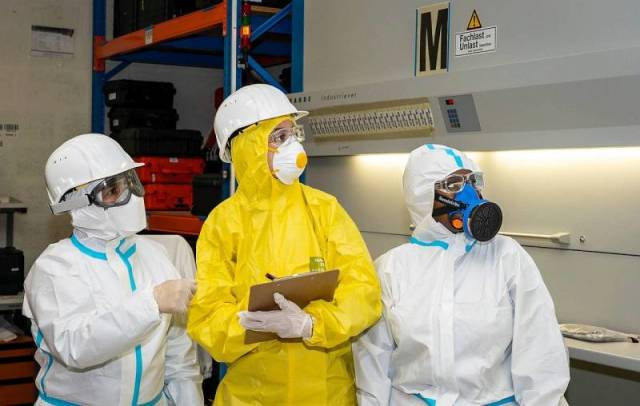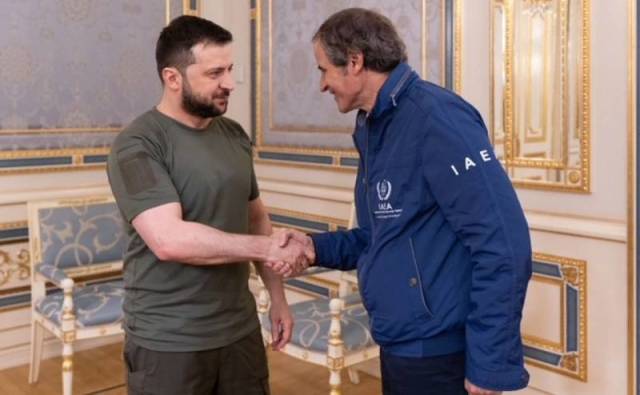
Image source: topwar.ru
When about a month ago representatives of the Russian authorities at various levels, including at the UN, began to raise the topic that Kiev was going to stage a provocation with radioactive contamination (using a "dirty bomb"), at first these warnings were met with hostility in the West. But thanks to Moscow's political insistence and by direct order from Washington, the IAEA sent a group of inspectors to Ukraine, who spent several days checking at three nuclear facilities.
At first, the Kiev authorities not only denied Moscow's accusations, but even called them a provocation, and President Zelensky called on the world to "react as harshly as possible" to the threats allegedly emanating from the Russian Federation and "another raising of the stakes," calling the reports about the manufacture of a "dirty bomb" insinuations. Later, official Kiev abruptly changed its rhetoric and even, almost on its own initiative, invited IAEA inspectors to check Ukraine's nuclear facilities where a bomb could have been created.
Now such a sharp change in Zelensky's position has become clear. On the eve of the inspection of the International Nuclear Energy Agency completed the inspection of three Ukrainian facilities where preparations for the creation of a "dirty bomb" could be underway. According to the results, a corresponding resolution was published on the agency's website, which states that no traces of the preparation of such weapons have been found in Ukraine:
Obviously, the inspectors were shown pre-selected and prepared facilities where it would be strange to find any signs of the production of radioactive weapons. With the same success, experts could make a report without leaving Kiev. Especially considering that when visiting the Zaporozhye NPP, the same inspectors from the IAEA "did not notice" obvious traces of the shelling of the station by the APU.

Image source: topwar.ru
In Russia, they reacted to the obvious profanation of inspectors.
— said Deputy Foreign Minister Sergei Ryabkov, adding that the Russian side is not satisfied with the conclusions of the IAEA.
Therefore, Ryabkov believes, "there are probably no grounds to be satisfied with what the IAEA has collected and prepared." When assessing this issue, Russia will proceed from the additional information it has accumulated.
